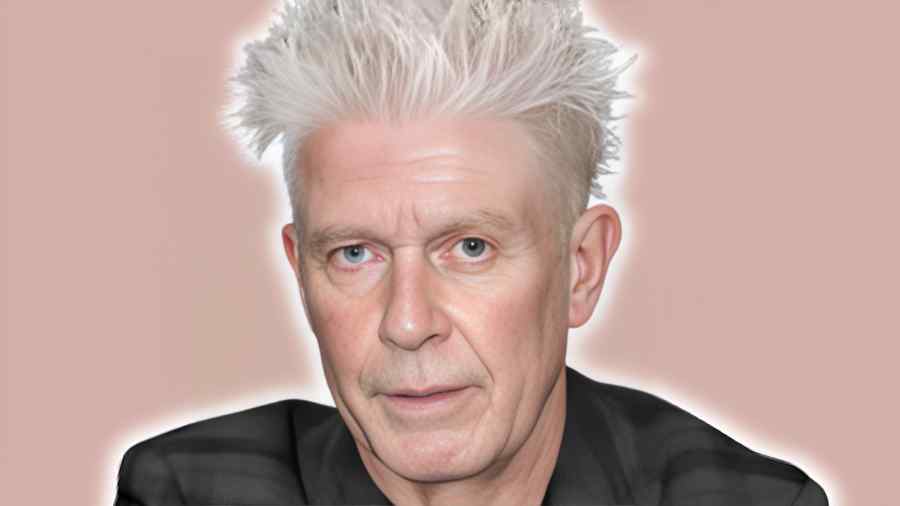Vladimir McTavish: A Towering Voice in Scottish Comedy

Vladimir McTavish is one of Scotland’s most respected and enduring stand-up comedians, known for a razor-sharp wit, incisive political insight and the ability to make audiences laugh while thinking. Over three decades in the business have allowed him to develop a tone that is at once warm, caustic and deeply rooted in Scottish cultural life.
Born and raised in Scotland, McTavish has carved out a unique niche: not merely an entertainer, but a social commentator, using humour as a lens through which to examine identity, nationalism, politics and human eccentricity.
Table of Contents
ToggleEarly Steps and Fringe Triumph
McTavish’s comedy journey is steeped in the Edinburgh Festival Fringe, where many Scottish and British comics have launched their careers. In 1994, on his first Fringe appearance, he won the Strathmore Water Comedy Award — a fitting herald for a long run ahead. Over time, he built up a body of work at the Fringe and in regional circuits, refining his voice and sharpening his satirical lens.
Between Fringe runs, he appeared as a compere, headliner or multi-act performer in clubs across Scotland, England and even overseas, gaining experience in myriad venues: pubs, theatres, festivals, cabaret nights and political salons.
Style, Themes and Stage Presence
One of McTavish’s greatest strengths is his social observation. He rarely punches downward; rather, he picks at structures, institutions and collective assumptions. His satire is laced with personal anecdotes, local colour and Scots idiom, making his commentary feel rooted, not merely theoretical.
His pacing is brisk — he does not linger on weak patches. He often threads through a set a series of riffs, callbacks and tangents, giving the impression of a conversation. Yet behind that conversational tone lies rigorous construction: he chooses which angles to tease and which to press.
Politically, McTavish engages directly. He doesn’t shy away from Scotland’s debates over independence, identity, the role of the media, social justice or how the UK is governed. But he treats his audience as thinking beings: he might provoke, but rarely insults wholesale.
Major Shows & Achievements
Over the years McTavish has premiered several notable shows:
-
Aye Right? How No?: A Comedy Countdown to the Referendum — this show, developed around Scotland’s constitutional debates, won Best Fringe Show at the 2015 Scottish Comedy Awards, reflecting both popular and critical approval.
-
Look At The State Of Scotland — a prior show that boosted his reputation for biting but affectionate critique of contemporary Scottish life.
-
30 Years Still Standing Up — debuting in 2024, this show celebrated his three decades on stage and mixed autobiography, reflection and new material. Reviews praised its balance of humour and reflection; one review from The Scotsman said he “takes amiable yet strident swipes against the horrors in store”.
-
Last Chance Saloon (2025) — his Fringe offering for that year, described as a sideways look at world problems, mixing satire, anecdote and social commentary.
He has also worked as a compere, master of ceremonies or supporting act, mastering the art of connecting disparate sets and managing audiences between headline acts.
Television, Radio & Other Media
McTavish is not confined to the stage. He has made appearances on television and radio, including:
-
Frankie Boyle’s Tramadol Nights (Channel 4)
-
The Rory Bremner Review (BBC Two)
-
Live Floor Show (BBC)
-
Radio programmes, arts panels and festival broadcasts
His media presence complements, rather than overshadows, his live work: he uses broadcast opportunities to further reach, but retains the integrity of his voice.
International & Festival Footprint
Though chiefly associated with the Scottish and British comedy circuits, McTavish has appeared internationally in festivals such as:
-
Adelaide Fringe
-
Dunedin Fringe (New Zealand)
-
Singapore Comedy Festival
-
New York Comedy Festival
-
Aspen Comedy Festival
These appearances show that his voice, though rooted in Scottish life, has appeal to an international audience interested in politics, culture and satire.
Thematic Pillars of His Comedy
Identity, Nationalism, Belonging:
Much of McTavish’s work circles around what it means to be Scottish in a changing world. He explores the tensions between local and national, the pull of tradition and the demands of modernity.
Politics & Power:
He addresses structures — government, media, institutions — with scepticism, exposing absurdities, hypocrisies and contradictions. But he seldom offers dogmatic prescriptions; he leans more toward questioning than sermonising.
Everyday Life, Observations & Anecdote:
Beyond high politics, McTavish grounds his work in human detail: family stories, regional quirks, local characters. These moments anchor his satire and make it accessible.
Time, Generational Change & Technology:
In recent shows, he reflects on how comedy has changed — how social media, digital culture and shifting norms demand adaptation (or rebellion). For someone three decades in the game, that reflection carries weight.
Longevity & Survival in Comedy
Few comedians maintain relevance for decades, especially ones engaged with topical politics. McTavish’s durability stems from several strengths:
-
Adaptability: He shifts with the times, updating references and refining his angle. What satiric targets worked in the 1990s must be rethought in 2020s.
-
Grounding: His rootedness in Scottish life gives him authenticity. He is not a detached “political comic” but one with local nuance.
-
Craft: He writes, edits, tests material in small rooms. His instinct is honed.
-
Connection with audience: While challenging, his tone is rarely alienating. He guides audiences into his line of thought, rather than throwing them off a cliff.
-
Diversification: He does headline shows, supports, media, compèring; he doesn’t rely on a single format.
Challenges & Criticism
Comedy with political edges always risks alienation. Some may find McTavish too pointed, or disagree with his interpretations. Satire often offends, and he must tread the line between humour and provocation.
Also, staying fresh is hard: material ages, audiences change, new comics emerge. The challenge is to remain both recognisable and evolving.
Audience & Cultural Impact
For many Scots, McTavish is a voice — one that refracts the complexities of modern Scottish identity, devolution, the push for independence, and tensions within the UK. He is often invited to arts festivals, panels and public discussion, where his role is not just entertainer but interlocutor.
His success also inspires younger Scottish comedians: he demonstrates that you can do more than light comedy in Scotland — that local voice, political awareness and sustained labour can earn respect and longevity.
Recent Activity & Future Outlook
In 2024 and 2025, McTavish remains active on the Fringe circuit. His show 30 Years Still Standing Up reflected back on his career while seeking new observations. Last Chance Saloon continues that momentum. He also holds a role at The Stand Comedy Club (Edinburgh) as a director, influencing the club’s politics, programming and cultural voice.
Looking ahead, one expects McTavish to continue refining his view of a changing Scotland — in politics, culture and comedy — and to mentor younger voices, push boundaries and test new forms.
Conclusion: Vladimir McTavish
In an era where entertainment often avoids discomfort, McTavish embraces it. His work demonstrates that comedy can engage seriously with big questions without losing its laughs.
He offers what few do: a regional, political, deeply human humour. He reminds us that identity, culture and power are never settled. Through decades of stages and dialogues, he contributes not just laughter, but perspective.



